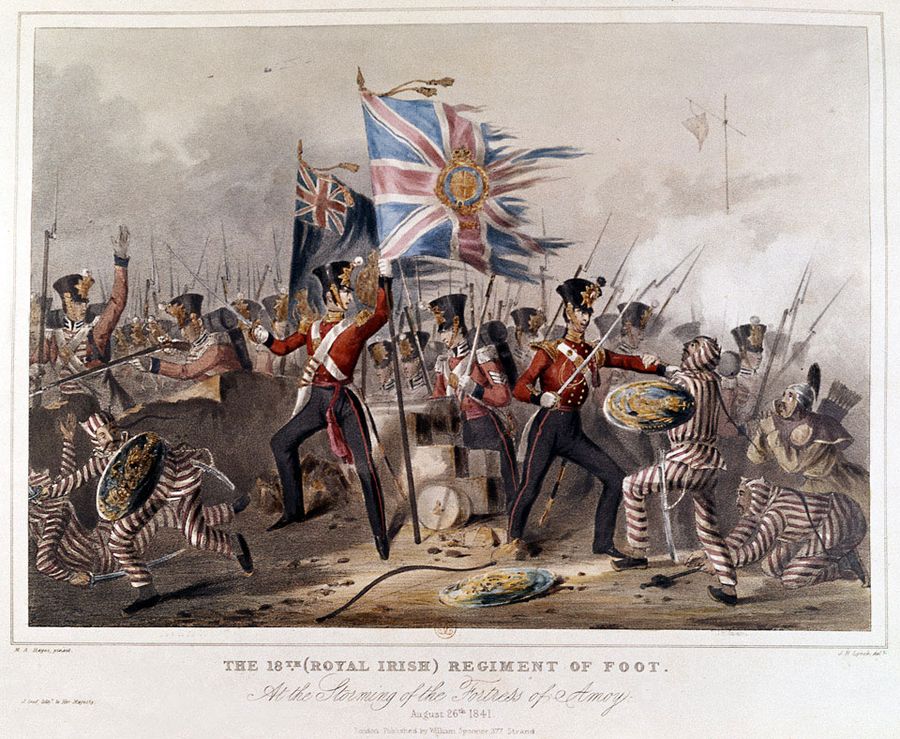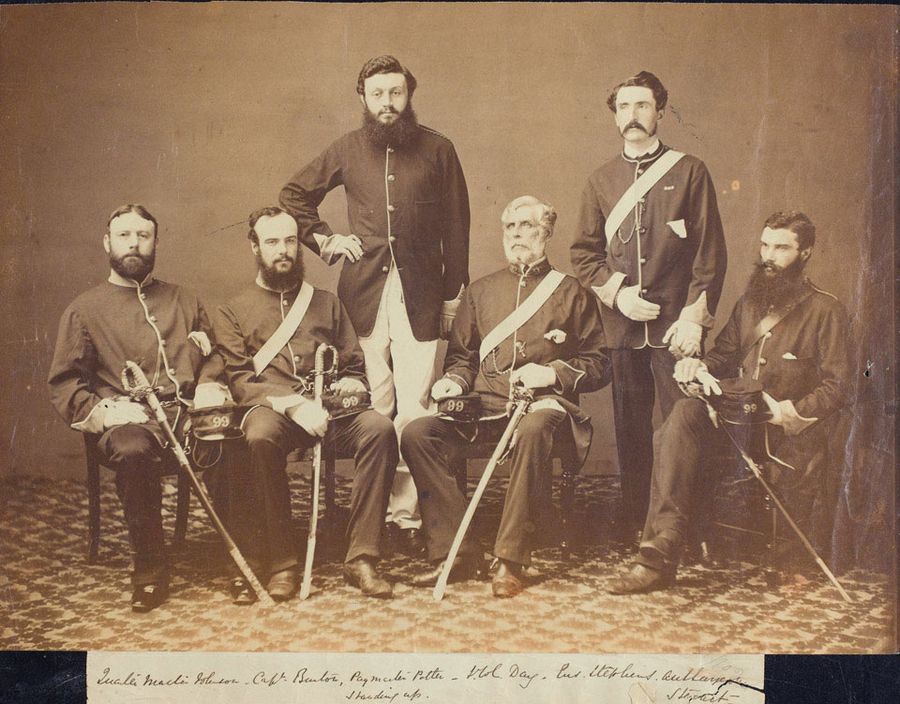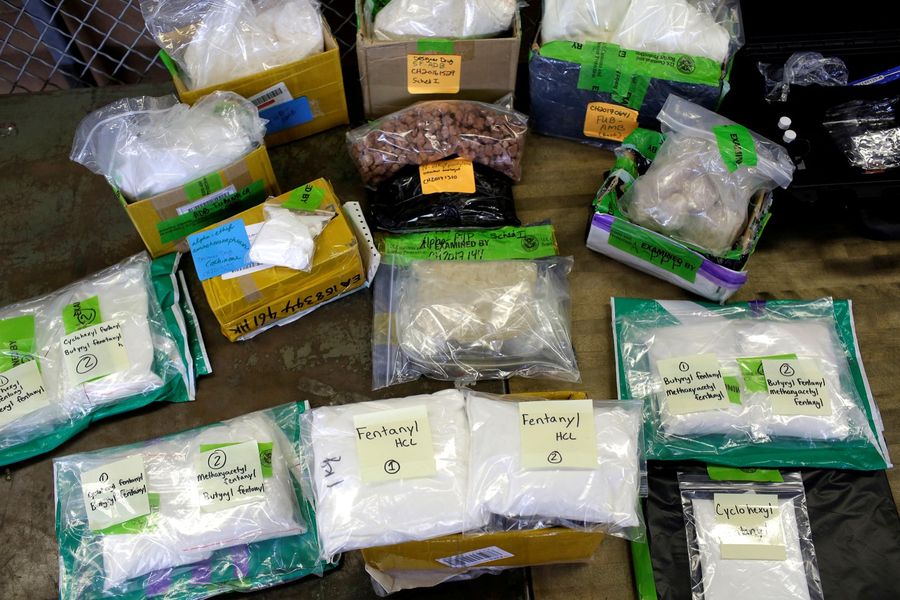Will the US start a Third Opium War?

How will December 2019 be remembered by historians? This question should stir up in us a sense of alarm. Not too long ago, people were optimistically expecting a trade agreement to be signed between China and the US by this month. However, as time flies by, the final weeks of the year will soon be over, and many issues remain far from clear. (Editor's Note: Washington and Beijing announced agreement to a "phase one deal" on 13 December. A signing of the deal at ministerial level is expected in the first week of January 2020.)
History is a mirror. While many Chinese youngsters see December as a time for joyous Christmas celebrations, some of their compatriots may still recall what happened on 31 December, 1838, the 15th day of the 11th month of the 18th year of the Daoguang period or the Qing dynasty under the Daoguang emperor. The latter appointed Lin Zexu officially as a special imperial commissioner, and sent him to Guangdong to crack down on opium. This decision eventually led to the First Opium War, which broke out in 1840.
The war ultimately forced China to sign the Treaty of Nanjing with Britain. A series of consequences followed, including the cession of Hong Kong island to the UK. The whole matter prefigured the hundred years of humiliation to be suffered by the modernising China, for the country would endure further invasions by foreign powers and be pushed to the verge of national and racial annihilation.
From trade deficits to opium highs
Notably, the events that led to the Opium War were ostensibly about trade friction between China and the UK. Having emerged from the Industrial Revolution with spectacularly elevated productivity, Britain urgently needed an enormous market for its goods to be exported to. And there it was - China, precisely the most ideal dumping ground. There were, however, complications.
China at that time was an independent feudal country producing luxury goods like tea, silk and porcelain that were popular in the European markets. The Chinese peasants, used to being self-sufficient, could not afford the woollens and other industrial manufactures exported by the British. As a result, trade with China burdened Britain with a tremendous trade deficit.

Without exception, trade friction always brings with it severe financial problems. Britain had adopted the gold standard for its currency since the 19th century, whereas China under the Qing government traded in silver. For this reason, the UK had to purchase silver from continental Europe for trade purposes, which cut further into the profits. The trade and financial difficulties were exacerbated by the problematic tax rates, as China was collecting a steep tax of 20% on British imports.
Until the 1820s and 1830s, China had been enjoying an annual trade surplus of two or three million taels of silver in its trade with Britain. The latter applied strong diplomatic pressure in a bid to reverse this unfavourable situation but to no avail. Eventually, they discovered a fabulous bonanza apart from selling black slaves from Africa to the Americas. It was the smuggling of large quantities of a special commodity - namely, opium - into China. The opium trade had Britain's capitalists and its government laughing all the way to the bank. The empire of the Union Jack was thus finally able to turn the tables on China. After having a favourable balance of trade for over 200 years, the Middle Kingdom began to see the scales tip the other way.
At some point, even the fatuous Chinese emperors came to realise opium could spell doom for the Chinese people and so they had to crack down on the addictive substance. By then, however, such action by the Chinese authorities could never be tolerated by the British capitalists and politicians who were being carried away by the splendid profits. After rounds of diplomacy failed to achieve anything, the UK ultimately fell back on its absolute military advantage, sent in warships aggressively and ignited a war against China.
Raising the stakes
The conflict was called the First Opium War by Chinese historians. It was the "first" because, soon enough, Western powers that had tasted the benefits of bullying the Far Eastern giant came back for more. They unleashed the Second Opium War, a joint invasion of China by Britain and France from October 1856 to October 1860 with the support of the US and Russia. The goal of the two invading countries was to further open up the Chinese market and expand their interests in this vast land, while the US and Russia took the opportunity to secure a share of the booty. Since Britain's pretext for taking military action was the incident with the seizure of a British-registered Chinese ship named Arrow (whereas France's was the incident with Father Ma Lai or Auguste Chapdelaine, a French Christian missionary who was killed in China), the conflict was known to the British as the Arrow War.

Compared to its antecedent, the second war brought more harrowing consequences. China ceded over 1.5 million square kilometres of territory, exceedingly greater in size than Hong Kong. The Old Summer Palace, a glorious treasure of human civilisation, was burnt to the ground. The Qing government was forced to sign one humiliating agreement after another, including the Treaty of Tianjin, the Convention of Beijing and the Treaty of Aigun.
The two Opium Wars drove an independent China swiftly into a state of semi-colonial existence. It was losing sovereignty and dignity as a country. Life was made very difficult for its people. China found itself teetering on the verge of an absolute crisis, nothing short of total national and racial annihilation.
Lessons of history
Looking back on the past is, of course, for the sake of comparisons with the present. Points of similarity exist between the China-US trade friction of today and the China-Britain conflicts from the earlier era. One may even say there are points of identicality.
Just as Qing China had maintained a towering trade surplus with Britain for a long time, Communist China has also been running quite a favourable balance of trade with the US for a significant period. Just as China-Britain trade was inflicting a huge financial loss on the UK, China has also begun to make the financiers and capitalists of Wall Street feel uneasy. Just as the British found the Qing government's hefty tariffs intolerable, the US now sees China's tariffs as a problem to be resolved. Just as Britain was far superior to imperial China in terms of technology and military strength, the US currently holds an absolute advantage over China in the same areas. Just as no deal acceptable to both sides could be reached through diplomacy in the run-up to the First Opium War, trade negotiations between China and the US have been a stop-and-go process that hardly leads anywhere, except to show how little both sides are willing to budge.
Popular sentiments that have been pandered to, incited, directed and stimulated can become addictive like opium, leaving the capitalists and politicians with no way to turn back. They would have no choice but to up the ante, again and again, in their already misguided policies towards China.
We can go even further: just as opium was an important chip in the trade negotiations between China and Britain, one particular opioid is constantly getting in the way of the current China-US trade talks. Despite China's strong control over fentanyl, the US continues to complain about an excessive influx of this substance from China and how it is causing American drug users much harm.
How can we not marvel at the degree of similarity - and even identicality - between the past and present reality? Inevitably we must ask: is there going to be a Third Opium War, fought this time between China and the US?
Cold war to hot war?
Presently, even the boldest scholars will go no further than claiming that the two countries are sliding into a new Cold War. I myself had thought that, no matter how deep the conflicts go, both sides would at least refrain from military engagement. As China and the US are both major nuclear-armed countries, a direct war between them seems impossible because of how terrible it would be. Unfortunately, many of the worst tragedies in human history - including the two World Wars - occurred precisely when everyone deemed them impossible. Politics is a movement. When things speed up, political conflicts can escalate, even to the point of flipping over. When China and the US adopt an increasing number of counteractive measures against each other due to trade friction and intensifying competition, the resultant acceleration will hurl their relations into a disastrous trajectory in which no brakes can work.
What warrants alarm especially is the fact that, given how well messages get propagated over the Internet, the politics of today is more easily shaped by populist sentiments incited via the media. Hitler, as we recall, came to power through democratic elections and led Germany into starting a war under the banner of democracy. A similar danger lurks today in America's electoral system. Vote-hungry politicians may stop at nothing to pander to the people and fan their sentiments. Capitalists too may, for their own interests, stop at nothing to lead the populace on and stoke their fire. To these manipulators, ramping up the hostility towards China could be seen as the most convenient and effective means to redirect domestic antagonism, stir up the "patriotism" of the electorate, and thereby harvest more favourable votes and consolidate their own power. However, as the old Chinese saying goes, "water can carry a boat, but it can also capsize your vessel". Popular sentiments that have been pandered to, incited, directed and stimulated can become addictive like opium, leaving the capitalists and politicians with no way to turn back. They would have no choice but to up the ante, again and again, in their already misguided policies towards China.
The desire for power is always all it takes to drive a war forward. There is never a lack of opportunities. A Third Opium War waged by America against China is not merely possible. It is, in fact, rather probable.
Under such circumstances, when American politicians and capitalists feel that their country still holds an absolute advantage over China in terms of the economy, the military and technology, and when going back and forth at the negotiating table is not getting them the trade agreement they can be happy with, no one can say for sure that war will never be an option for them. Furthermore, there are so many potential fuses between the two countries that can be conveniently triggered. From the South China Sea, the Taiwan Strait to the Diaoyu Islands and the Korean Peninsula, a mountain could be made out of the smallest molehill, providing an excuse for American warships and warplanes to converge around China. Indeed, just as an issue with opium had drawn fire from foreign cannons before, fentanyl smuggling can also be a "reason" for the Americans to move in on China, reminiscent of how they once claimed Iraq was hiding "weapons of mass destruction".

The desire for power is always all it takes to drive a war forward. There is never a lack of opportunities. A Third Opium War waged by America against China is not merely possible. It is, in fact, rather probable.
Fortunately, the present reality is different from the past in that there are always new possibilities. Clearly, the China of today is no longer the Qing Empire of nearly two centuries ago. What she relies on to secure trade surplus with the US are no longer low-level commodities like porcelain, tea and silk, but a growing list of globally popular industrial manufactures, inclusive of Huawei's products. Her weapons against the invaders are no longer mere spears and sabres. Conscious of the dramatically dynamic global scene, she will no longer choose to isolate herself behind locked doors, but will instead move more proactively to actualise one of Sun Yat-sen's visions, which is to "unite all the peoples of the world that treat us with equality". She will choose to stand with more countries in the joint efforts against unilateralism and hegemony. Things are different now because the Chinese people made all these possible through the sacrifices and bloodshed they suffered over more than a hundred years.
Today, should the politicians and interest groups of any country seek to wage a Third Opium War against China, they will have to think deeply about the possibility that there would be no reprise of the victory historically gained by the Western powers of Britain, the US, Russia and France. But that is not even the real issue at hand. What's truly problematic is this: Even if the politicians and interest groups realise the above, the trade friction already initiated may still escalate and spark off more unstoppable conflicts, lapsing into a vicious cycle. China-US relations may thus eventually fall through a critical point where peace ends and something else begins. Should this come to pass, history will surely not pardon the greed and foolishness of those responsible.
